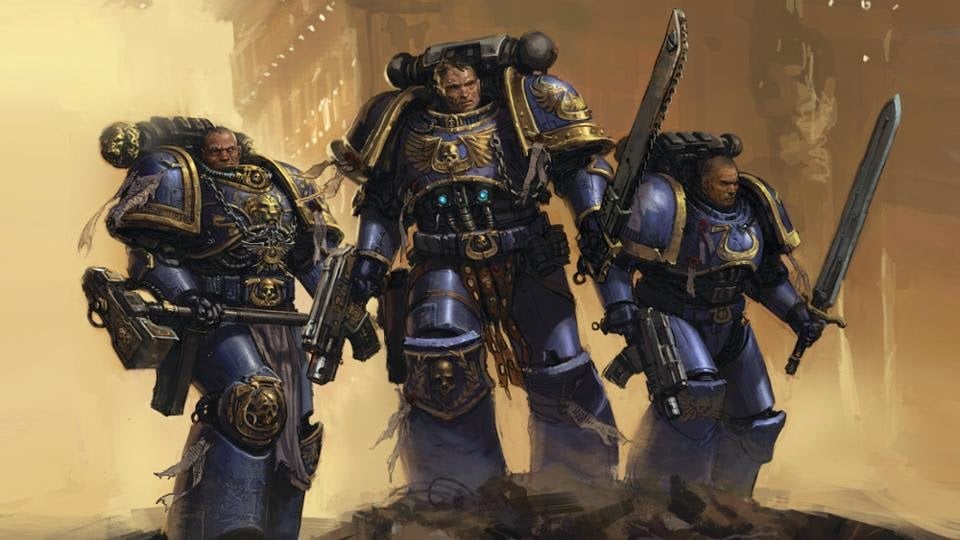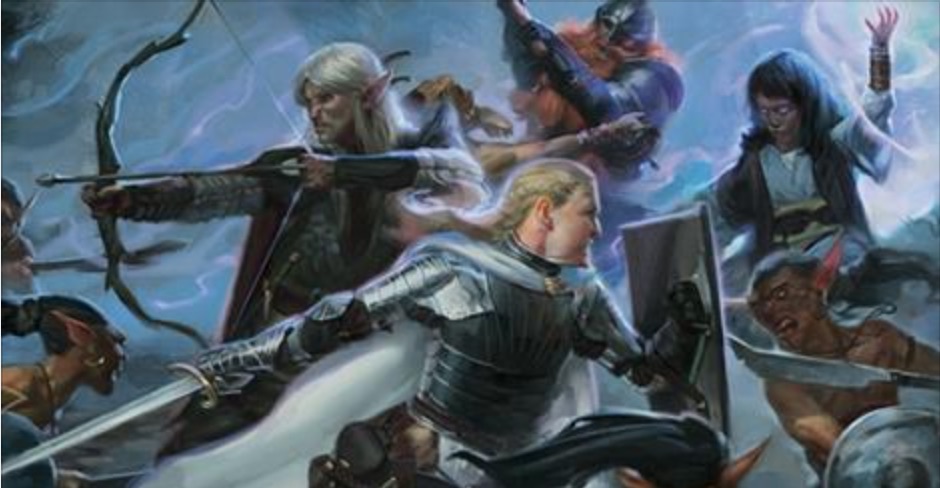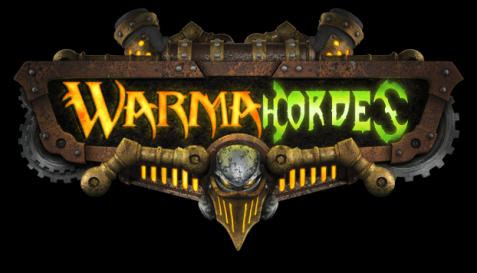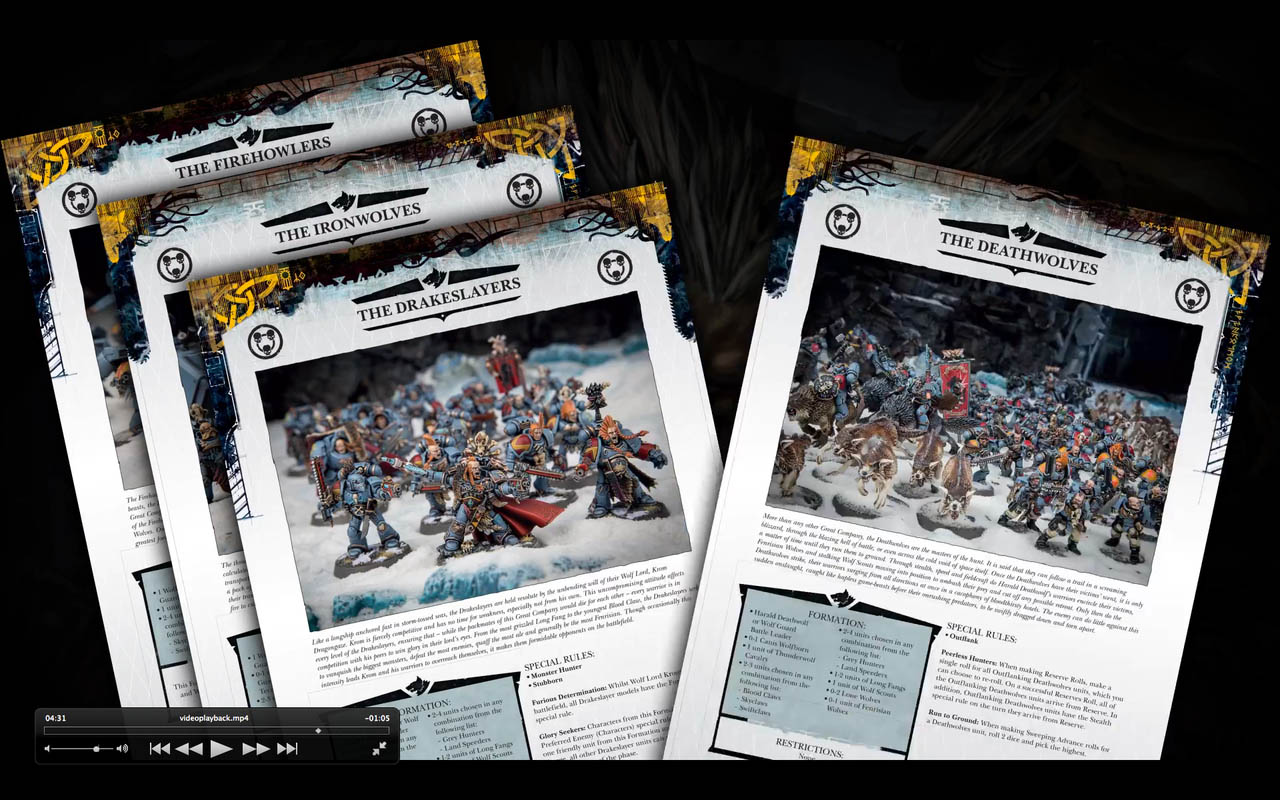Editorial: Are Complex Rulesets Doomed?


The Tabletop Gaming Industry seems to be trending toward Streamlining – what could that mean for YOU?
According to industry watchdogs ICV2 the estimated hobby market in 2014 was around $880 Million. In 2015, it’s estimated that the overall hobby games business grew another 20%. Some of the fastest growing categories were RPGs, Board Games & Card Games. Miniature games sales stayed roughly flat in 2014 compared to 2013. Why do you think that is? The biggest sellers in 2015 for the miniatures business are X-Wing, 40k, Star Wars Armada, Warmachine and Star Trek Attack Wing – in that order.
There are a lot of factors to consider – pricing, availability, popularity of the license, barriers to entry – the list goes on. But one of the thing I wanted to look at today was the shift away from complexity towards “streamlined” rule sets.
What do I mean when I say “Streamline” – in this case I’m referring the removal of complexity for a game’s rule set by the removal of “extra” complications within the rules. Some call that “bloat” but that’s not always the case. For example, Warmachine/Hordes MK III just cut about 1/4th of it’s core rule set from the previous edition. A lot of players are loving it saying that Privateer Press cleaned-up and tightened down an already excellent rule set. X-Wing has a rules pamphlet that is around 20 pages and it’s arguably one of the better rule sets out there as well. Age of Sigmar with the General’s Handbook is still just a handful of pages of rules and it’s made a huge comeback recently.
So what gives? Why is the industry as a whole moving away from complexity in rule sets? I think it’s a case of trying to make the games more appealing to wider markets. If you look at the explosive boom in board games, you can see that there are lots of “casual” gamers out there with money to spend. They don’t want textbook sized rulebooks to read. Even RPGs aren’t really that complex. The Player’s Handbook for 5th Ed D&D really only has about 30 pages of “rules” – the rest of the book is character creation (which now has charts to streamline that process) and the Magic Spells section.
Now, I’m not rallying against those “filthy casual” gamers. In fact, I welcome them because they can only make the industry, as a whole, better. When a rule set is tight, concise and simple there is less arguing over what you can (or can’t) do. I hate arguing at the table over some stupid rule – I still joke with my friends about the old school Land Raider Pivot rules (it’s funny now, but that was a serious debate!) Having a rule set that is easy to learn but difficult to master is really the best selling point of any game. If you can teach a child to play it but still manage to keep adults interested you’ve got something special on your hands.
That said, I think that simple rule sets do not equal simple games. Look at “Go” – it’s a classic game and if you think it’s really easy to master you should play it against a veteran player sometime.
Hidden Complexity
The games I listed above as examples (X-Wing, Warmachine/Hordes, Age of Sigmar) all have one major thing in common – the core rules are fairly simple, but the complexity comes from the cards. Warmachine has a TON of special rules but they are all easily referenced by the faction decks or books, same with Age of Sigmar (except they are called “warscrolls” and those rules are free). X-Wing has a TON of cards for upgrades, pilots, crew members…all the rules are really on the cards.
In fact, with these games, I would say that the complexity is just shifted towards the cards. That’s really where the depth in these games comes from. This allows the game designers the freedom to update the units via updating the cards without having to re-write the rule set. However, after a certain amount of “updates” you end up with the same problem you had before – bloat. That’s when you have to go back to the drawing board to cut the unnecessary rules out and slim-up your game.
What Does This Trend Have To Do With Me?
Well if you’re a 40k player, moving forward I wouldn’t be surprised if we see a “Sigmarized” rule set for 40K. The core rules will probably look very similar to what we have now (at least they SHOULD if they don’t want to tick off every 40K player in the world) but Games Workshop will probably shrink the special rule section down quite a bit. If there is one area that needs to get some attention, it’s that. They should probably give the psychic phase another pass, too. Then you’ll probably start to see all the special unit rules move to their codex or “formations” later on.
If you’re not a 40K player, you’ll probably see this trend continue. There is a new batch of gamers that has an even shorter attention span than the previous generation, who had a shorter attention span than the previous…well you get the idea. If the Industry is going to continue it’s growth it’s got to appeal to multi-generational gamers. The rules have GOT to be concise and straightforward. Fiddly rule sets are getting left by the wayside or are played in by ever shrinking niches that they can’t support themselves. But at the same time the game has to have variety and tactical depth. There are too many games out there that offer all those things – if your game isn’t doing the same, you’ll lose.
Streamlining The Future
The industry of hobby games is heading toward “simple” games. They have to complete with everything else fighting for your hobby time. It’s an uphill battle but the industry has had 7 straight years of growth. That’s pretty amazing when you think about it! Board Games, RPGs and Card games are leading the charge and influencing Miniature Gaming as well. With the massive success of X-Wing and others, more & more companies are trying to tap into that magical formula of “Easy to Learn, Difficult to Master.”
But those “simple” games will have to have that hidden complexity if they want to keep the hardcore players interested – and you NEED those players because they are the foundation of your gaming community. They are your loudest fans and your biggest critics. But will this be the end of overly complex and complicated rule sets? Only time will tell.











